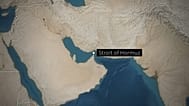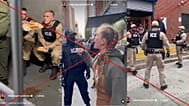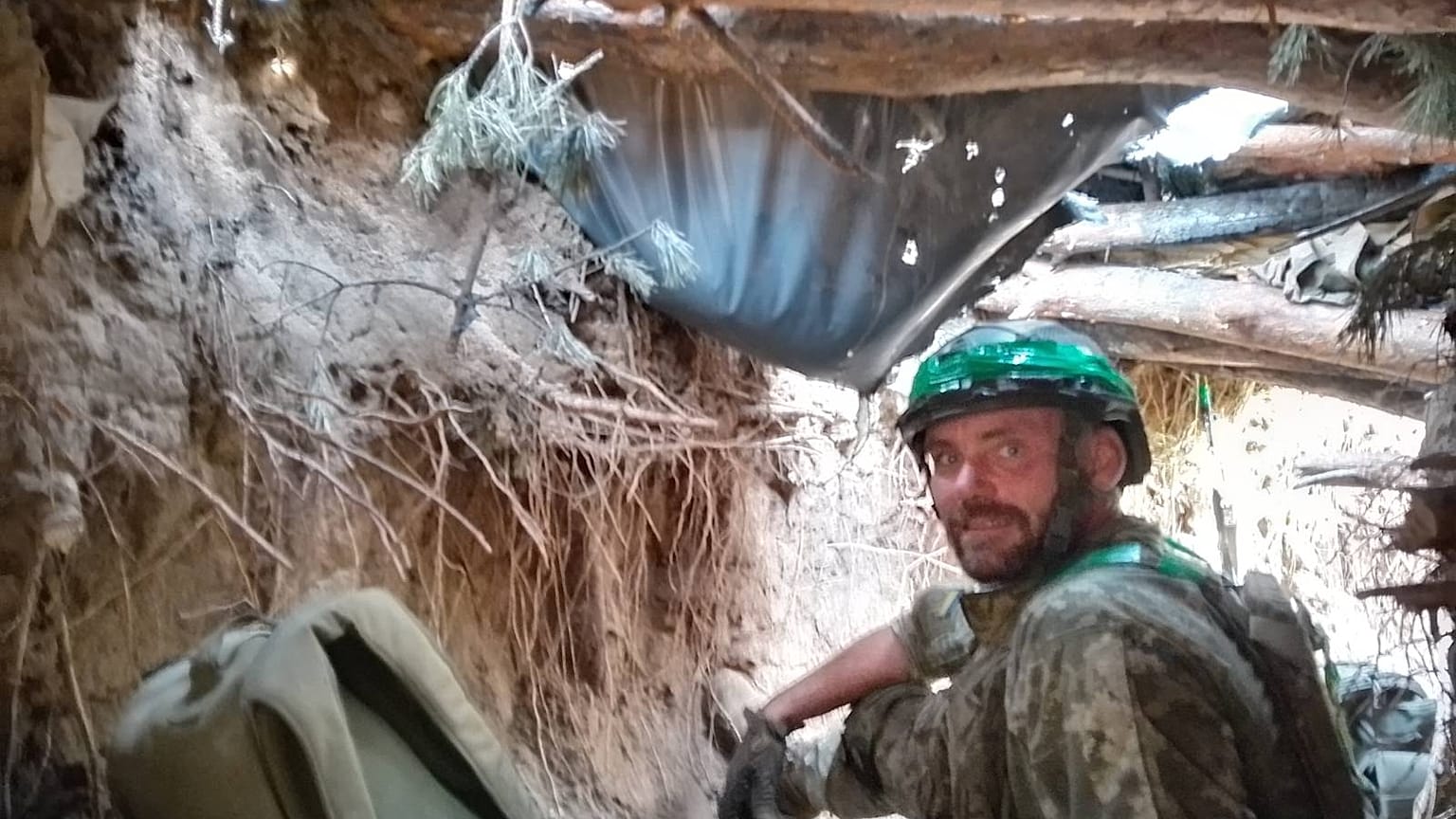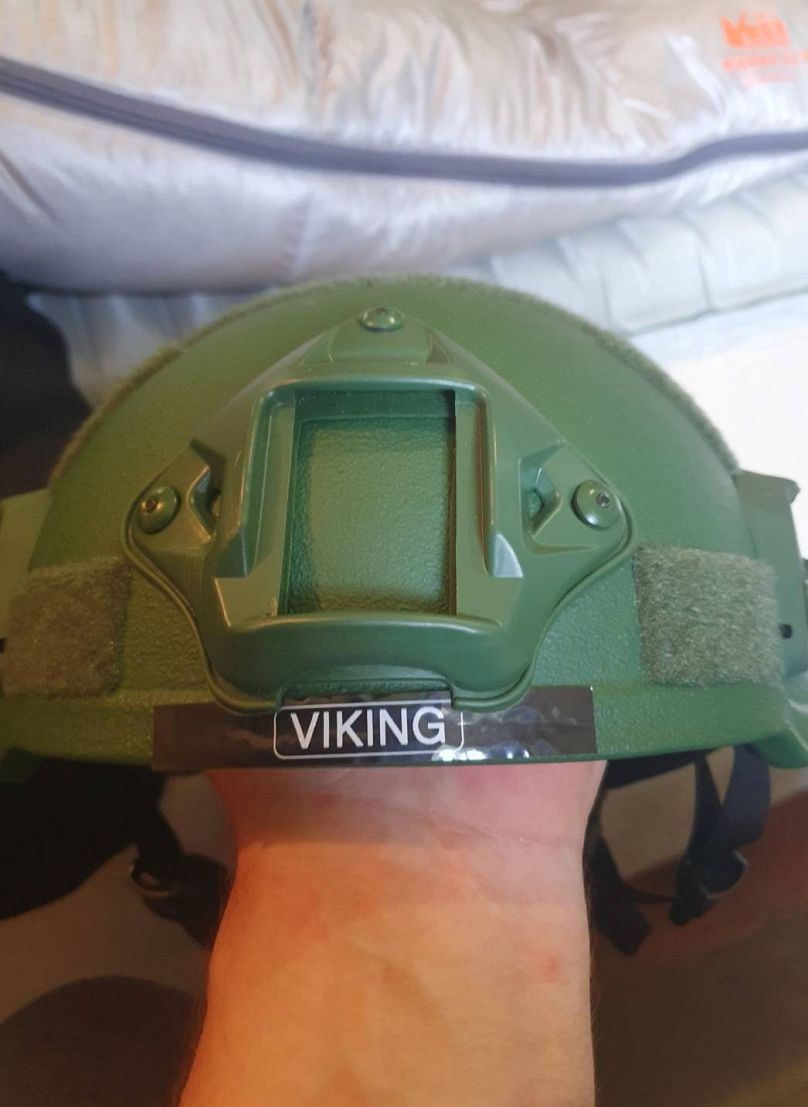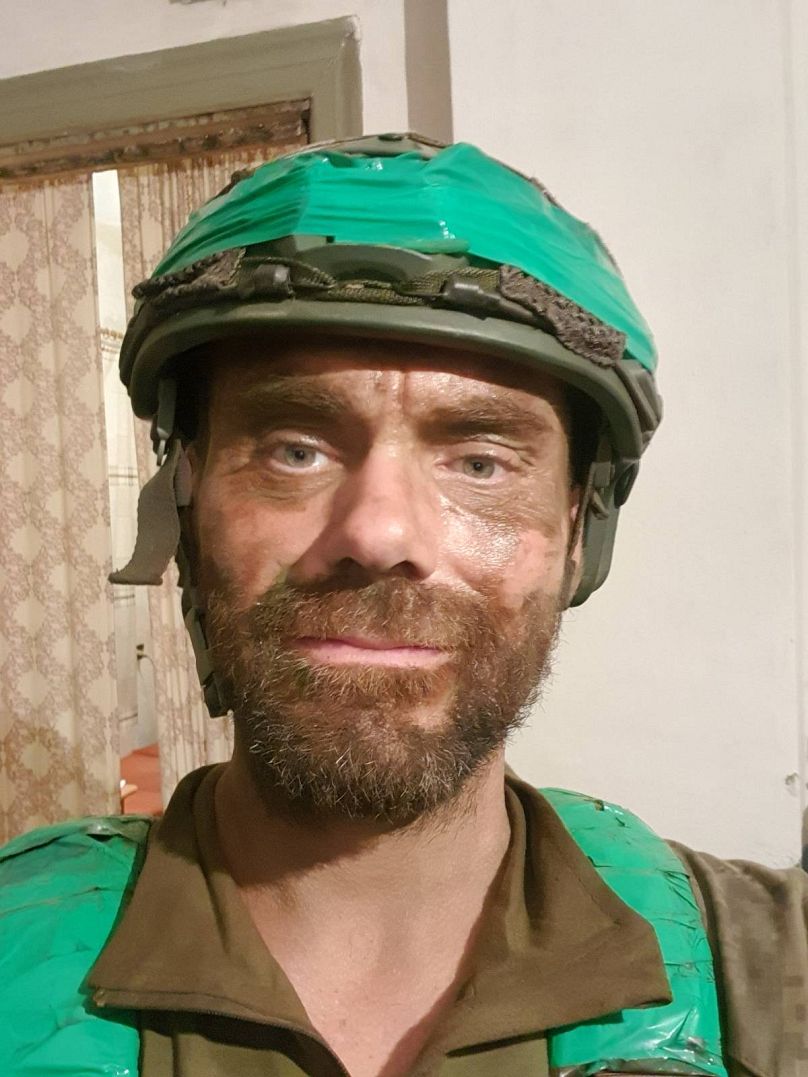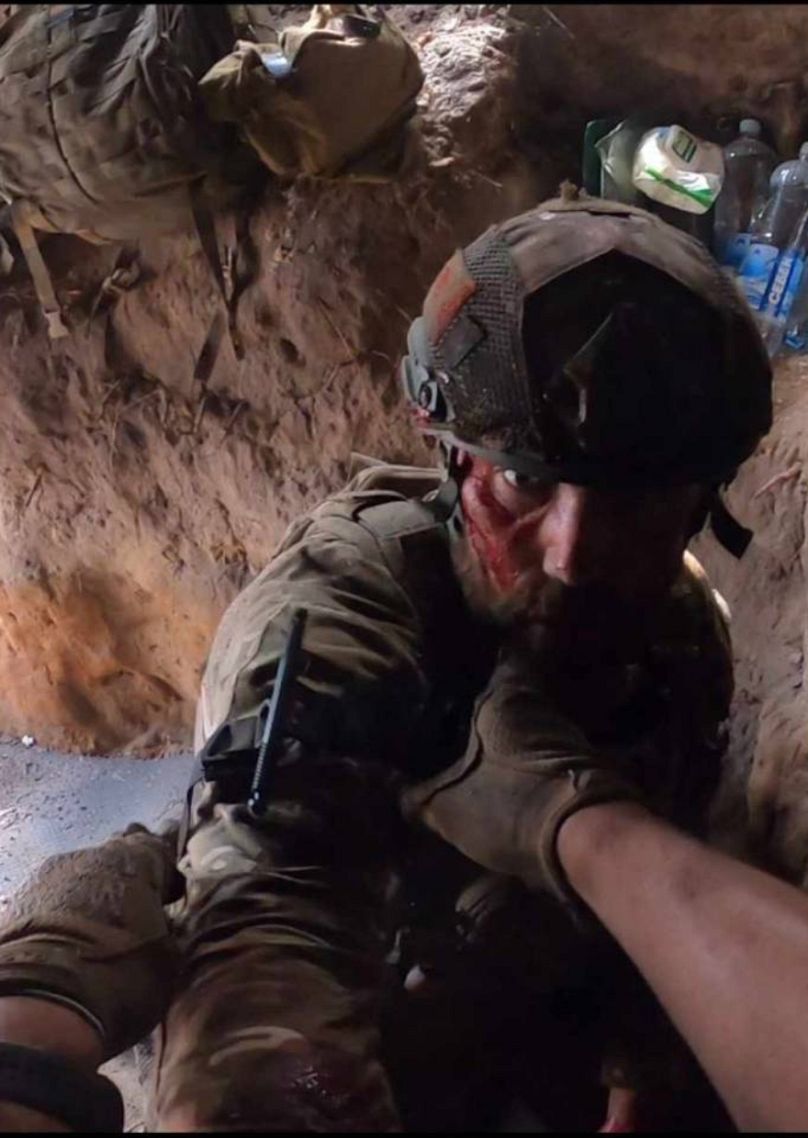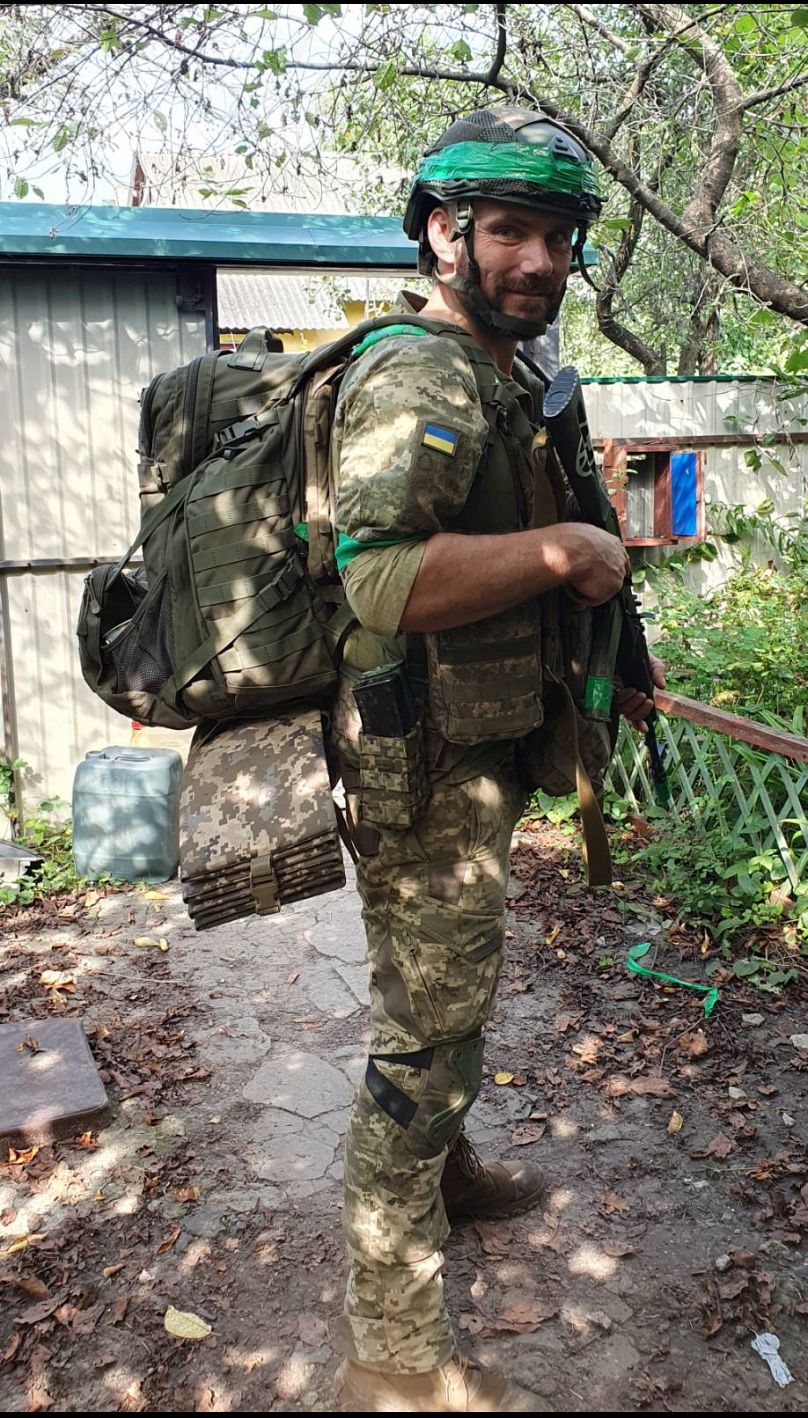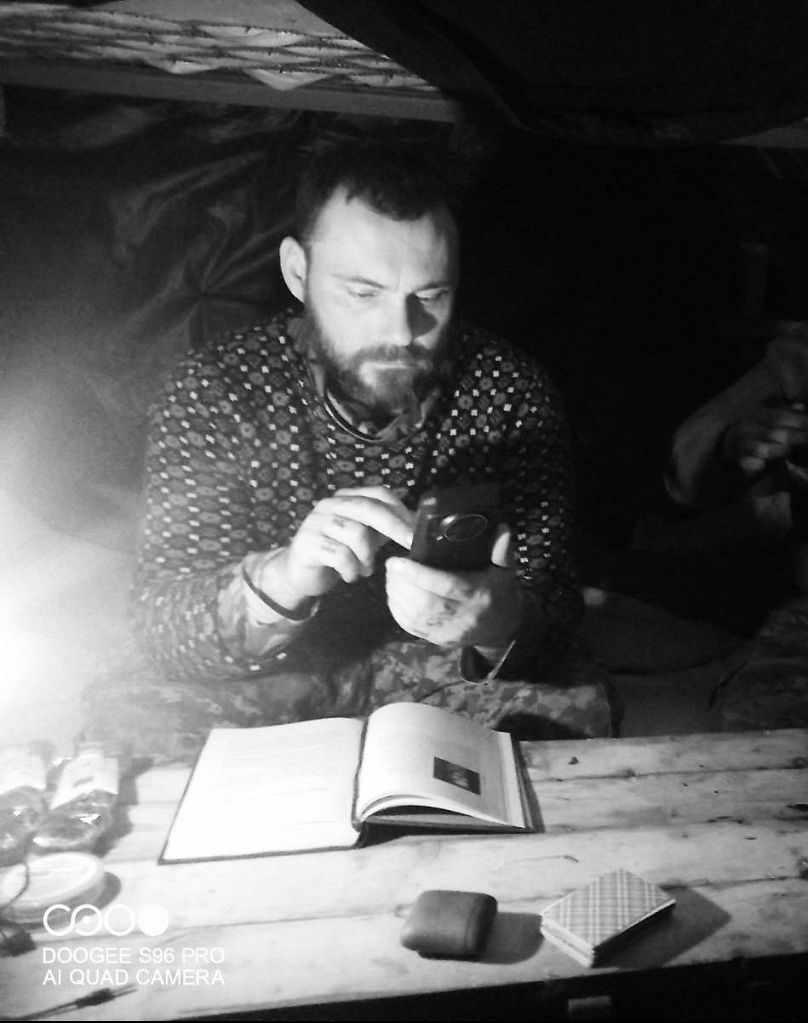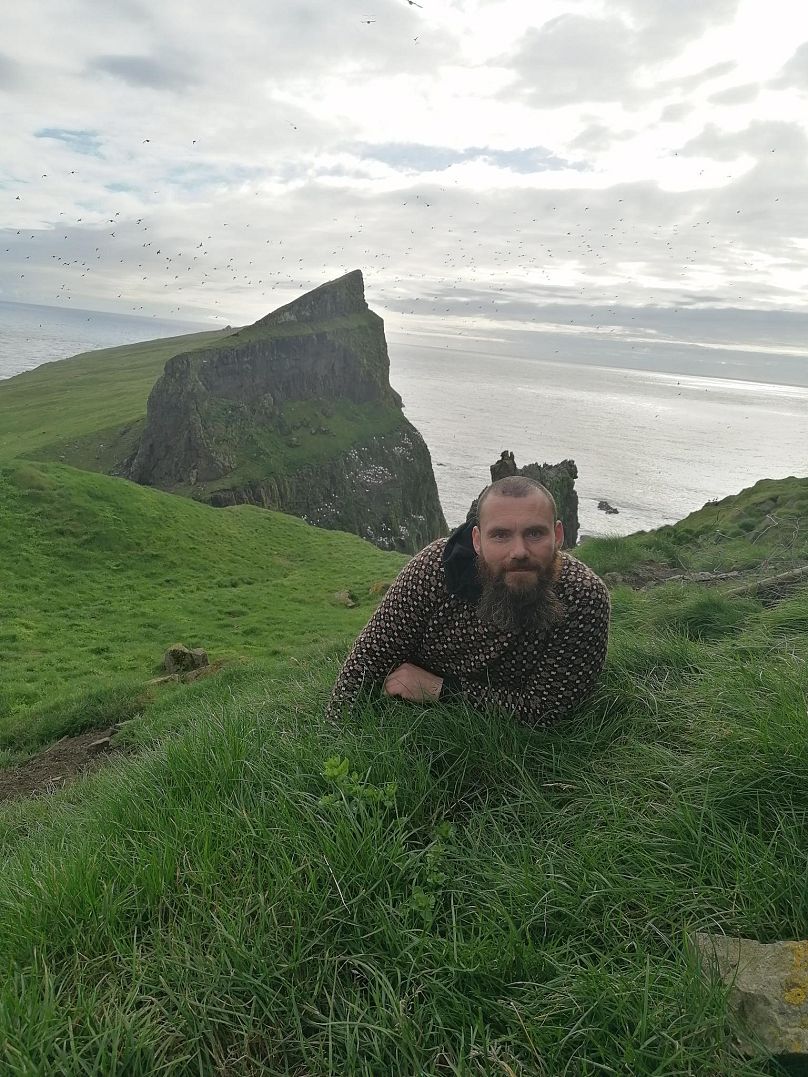Bjørn from the Faroe Islands used to be a fisherman, but now he is "Viking" and fighting in the Ukrainian foreign legion. He told Euronews about the training, the reality at the front, how he got injured and why he wants to continue to fight.
There are very few people with such a remarkable biography as Bjørn. Born on the remote Faroe Islands, an archipelago that sits between Norway, the UK and Iceland, Bjørn started life as a fisherman in other cold countries, including Greenland, and then worked in construction in his native Faroe islands. But that was his life before the Ukraine war. Now he sits in a bunker somewhere near the frontline in the east of Ukraine, one of the very few fighters to have made it past the intense foreign legion training that he says many even with previous military training do not pass. But how exactly did he get here?
 ADVERTISEMENT
ADVERTISEMENT
 ADVERTISEMENT
ADVERTISEMENT
Foreign fighter by accident
Bjorn was backpacking around Europe when he received a phone call from his cousin, who had joined the Ukrainian Foreign Legion at the very beginning of what Russia was still calling a “special military operation.”
“We were talking for over an hour. He told me about all the atrocities the Russians are doing against civilians, against P.O.W.s, from the Wagner group, and those very, very graphic videos,” Bjørn told Euronews, adding that he felt like he wasn’t doing anything useful back home, having quit his job 12 days before, with a loose plan to go back to fishing.
The Russians “are attacking civilian buildings, civilian infrastructure, first aid groups. They always trying to break the morale of the Ukrainians,” he was told. That struck a chord with Bjørn, who instantly decided to join his cousin, who is also his godson.
Despite the protests from his cousin, who tried to talk him out of it, the former fisherman travelled to Ukraine, where he was to undergo very intense training that he estimates 40% of people do not pass.
“It's a different war. This is not like Iraq or Afghanistan or any other war. It's like World War One all over again, except with drones. You are running through trenches. You are hiking in bunkers. Even former soldiers need to retrain,” he says shaking his head.
Despite being a civilian, Bjørn was set down a path that would see him training as a machine gunner.
The initial physical training was three to four weeks training, and Bjørn says he lost 20 kilos in five weeks. 26 trainees left halfway through the training.
'A lot of the civilians turned out better than a lot of the former soldiers'
The whole training is two months and the fighters train in full gear, wearing ballistic vests that can weigh up to 20kg in 26 degree heat. For someone that was born in such a cold climate, this was no easy feat.
“Many guys came. They joined the Legion and after one week, they were like, you know, I have eight years of experience in the army, I'm a ranger, major, whatever,” and then abandon their training, often turning up “injured or dead,” two weeks later. Bjørn reckons that of the recruits end up at the front, 20 % leave after 2-5 missions because they realise that “war is hell.”
Some of the recruits on the Ukrainian side leave after four months, after the reality of being shelled constantly and not being able to sleep gets to them.
'It was something like ten days before I was deployed, and my first three missions were extremely hard'
An unofficial ritual, the recruits are all given nicknames by the other soldiers when they join. Bjørn’s is “Viking,” a nod to his Nordic heritage and his tall and strong build. His best friend, who he says is as close as the brother he never had, is called Cyprus, thanks to his home country. The pair are now inseparable.
On Bjørn's first mission, the recruits only got a couple of hundred metres before a drone dropped a grenade on the house they were in and they needed to walk three kilometres to the front, where they continued to be shelled. Without Ukrainian air support to defend the skies with fighter jets, it really does hark back to the wars of the 20th century.
“I really just wanted to go home,” Bjørn says about his first missions. But he persevered and begun to get used to the crashes and bangs of artillery, mortars, RPGs and all other types of explosions. He explained that once you can distinguish between these sounds, you become more calm, because you know how to react.
But a few missions later, Bjørn was injured.
'All hell broke loose, and these two guys were caught in the line of fire'
Bjørn was on a recce mission, to see what Russian soldiers were up to in their bunkers. He says due to the terrain conditions, it wasn’t a case of crawling metres between trenches, but swimming. But suddenly he heard a bullet.
Ten minutes later, a very intensive firefight broke out. “It was the most RPGs I've seen since I joined the war,” Bjørn said.
"At one point I see my front bunker has gotten in trouble.” Bjørn was defending his teammates from the large number of RPGs, snipers and machine guns with suppressive fire, when he heard the sound of an RPG piercing his armour. He describes the rapid staccato tap of these grenades.
“They make two explosions like, ‘thun-thun.’ The first one is to break through the armour and the second one is to kill whatever is inside. And I heard the first explosion, ‘boom,’ and I thought, ‘oh damn, that’s close.’ And then the second one hit me.”
Bjørn was thrown with such force that when he hit the wall, his body left an imprint in the sandbags.
He blacked out for 10 seconds. When he came to, a cloud of dust and smoke so thick cloaked his legs. He grappled for his gun, which he managed to grab on the floor. He immediately knew something was wrong.
"I had put one of my hands all the way up to my face to see that actually I was injured and bleeding." He was hit by pieces of shrapnel between 1mm and 1.5mm in his torso, arms and legs. His gun also didn’t survive and was showered with shrapnel.
“I couldn’t see anything.” Despite this, he still managed to run 15 metres to escape the smoke, where he tried to apply a tourniquet. Both hands were so badly injured, that he was unable to twist the material around the wound to stem the bleeding.
No one is going to Valhalla, not this time
Luckily, two of his fellow comrades, including Cyprus, came to his assistance and managed to apply the tourniquet successfully.
However, when Bjørn looked down, he noticed a lot of blood concentrating around his groin. He feared the worst. "Cyprus, check it,” Bjørn says he screamed at Cyprus.
“No, no, Viking, I've got to stop the bleeding,” his comrade replied, attending to his other wounds. Bjørn was also bleeding from his side. The pair begin shouting at each other, Bjørn says, fighting about what was more urgent to attend to. After much arguing, Cyprus and another soldier who heard all the commotion stripped Bjørn down and examined the area. Time freezes until Cyprus comes back up with both thumbs and tells him the good news.
The firefight broke out again, and Cyprus and his comrades left Bjørn and his broken gun in the tunnel to go and fight. Bjørn says he began to shout about Valhalla.
But adrenaline is one hell of a drug. Bjørn doesn't remember any pain from the incident. It took him two days to feel the pain. He has since recovered 80% of the feeling in his arm following a nerve transplant to one of his fingers, and several months in a hospital. He will find out in three to five months if he will get back the full function and feeling.
The reality on the frontline
Bjørn says that a lot of the Russian soldiers are not just really young, but that they have no armour or helmets. Many of them are inexperienced and when sent to the front, end up getting lost before stumbling into the Ukrainian soldiers.
“They usually use these guys, send them forward, dig trenches, stuff like that. These guys usually get shot and when they're finally finished, then the professionals will go for it.”
It’s really easy to tell the difference between paratroopers or conscripts, he says, because “conscripts are very cowardly. They start shooting from 80 to 100 meters away,” blindly firing in fear.
But paratroopers and professional soldiers with more experience are very aggressive.
Bjørn also talks about occupied territories. He revealed that in many places, including Bakhmut, Russian soldiers were holding residents as hostages to use as human shields “because they knew the Ukrainians wouldn’t shoot.”
His own battalion has found evidence of mass graves with “all signs of execution,” which he believes to have been perpetrated by the Wagner group. He says has seen videos himself (that could not be independently verified by Euronews) of women being gang-raped and women and children being targeted by a tank. But he tends to avoid these graphic videos where he can.
"I am fighting for a good cause"
Bjorn says his motivation for returning to the front is his deep respect for the Ukrainian people to continue to persevere even in the face of such atrocities.
Bjørn also says that Russian soldiers “destroy everything,” including villages near the border with as few as 20 residents, because they are determined to eradicate all things Ukraine.
“If they lose, they will never be able to call themself Ukrainian and this is something Russia wants,” he says.
Bjørn adds he feels he is fighting for a just cause, “which is very rare nowadays.” He says that where he is, Ukrainians don’t consider themselves a part of Russia, which Russia often uses to justify the war, unless 250 years of genocide and occupation are considered to be a historical claim.
“It's so weird that people still believe that Russia is fighting against Nazis. Zelenskyy is Jewish, the PM is Jewish. The defence minister is Muslim. It’s 20 ethnic groups here and 30 different languages. That's everything except Nazism.”
Bjørn sympathises with Ukrainians and draws similarities between Ukraine and his native Faroe Islands, which only gained independence from Denmark in 1948.
War teaches you to appreciate the small things in life
Bjørn says through the war, he has learned to appreciate the small things in life.
“I hated going to a children's theatrical play before, but I will properly enjoy them in the future. I get easily moved inside now... Before the war, I was a hardcore workaholic, but now I’m a soldier with an appreciation for the small details in life,” he laughs. When the war is over, he plans to watch an Icelandic volcano erupt with his 14-year-old son.
He vows that his battalion is determined the Russians will not break through their defence lines to the city they are defending. He is dedicated to protecting the civilians there.
But it’s not easy. He believes two wars are simultaneously being fought: the actual war and a media war. Bjorn says the Russian propaganda about Russia winning is very far from reality.
“Since Putin started this war with Ukraine to stop NATO, Russia has become surrounded by NATO." He believes President Putin is just trying to save face. He doesn’t think the war will end anytime soon.
Putin has to be stopped
“If you don't stop Russia here, at this front, this is right next to a European border,” he warns, pointing to Russia’s recent history including Crimea, Georgia and Chechnya.
His biggest fear is a nuclear war, but urges after the war, “everyone has to sit down and talk about these nukes and why a few countries have so many things that are going to destroy half of the world. I mean I'm, I'm 40 years old and I’ve nearly had three nuclear wars in my lifetime.”
“I wish after this war, we have 100 years of peace consolidating our universities, science, medicine... just for once. I think everybody's just tired of war,” he laments.
But for now, Bjørn is looking forward to returning home after the war. He says the Faroe Islands are paradise.
What helps us to stay human here at the front
Bjørn says, “if it wasn't for your support, we would not be this strong for this long.” He especially thanks private donors who helped send armoured vehicles, personal cars that they use for transport, which are very, very meaningful because the roads in Ukraine are very, very right now, muddy and bad.”
He adds: "I guess, what keeps us human at the front and not just cannon fodder, is knowing that behind us are civilian people caring about us being alright, well fed, warm in winter, that we have coffee, food, sweets... The feeling that we are appreciated and not alone.
If you want to donate you can do so here.



